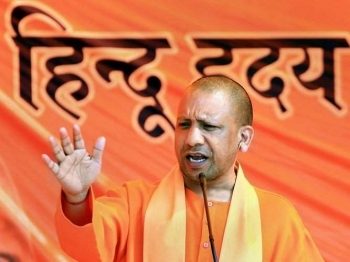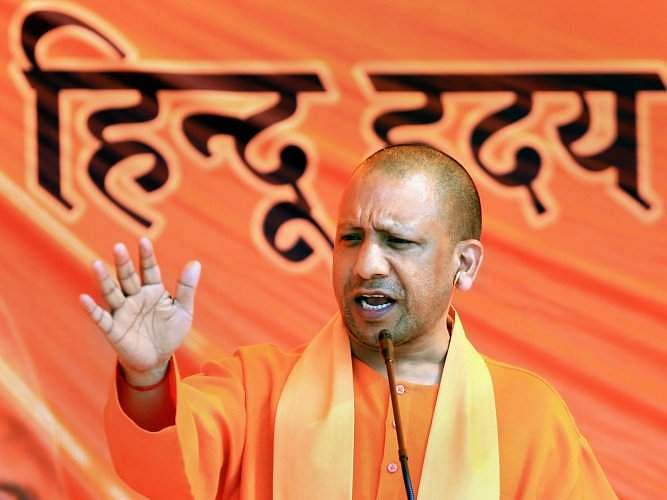
 A. J. Philip
A. J. Philip

The Pareto Principle, named after economist Vilfredo Pareto, can be applied to many fields like industrial production. Also called the 80-20 principle, it means that 80 percent of consequences come from 20 percent of the causes, asserting an unequal relationship between inputs and outputs.
Pareto derived the principle from his finding that 80 percent of the land in Italy was owned by 20 percent of the population. To put it differently, in a company, the profit comes from the work of 20 percent of the employees, though the benefits are distributed evenly among all the staff.
When Uttar Pradesh Chief Minister Yogi Adityanath said the other day that the forthcoming election was between 80 percent and 20 percent, I thought he was referring to the Pareto Principle. It is a different matter that he does not have any pretensions of knowledge, especially about such esoteric subjects like the 80-20 principle.
What he alluded to in his statement was that the coming elections will be between 80 percent Hindus and 20 percent Muslims. One can imagine what the result would be if the contest is really as imagined by Yogi.
When he realised that his statement could land him in trouble, he clarified that 80 percent represents those who support the temple and 20 percent those who support terror.
In other words, it would be a contest between temple and terror. What the Chief Minister does not realise is that in a country which has tens of thousands of temples, nobody is opposed to the temple construction at Ayodhya, particularly after the Supreme Court verdict. The contest is, therefore, imaginary.
Yogi thought that being a religious person, he is invincible. I am sure he would not have heard, let alone read, the story of Goliath and David in the Bible. Goliath thought that he was invincible, particularly when he had to confront a little boy. He underestimated David as the boy took his sling and hurled a stone at Goliath that felled him.
The moral of the story is that one should not underestimate one’s rival, however insignificant he may appear to be. If Yogi has difficulty in reading a Bible story, he will do well to familiarise himself with the Jataka tales, a large volume of stories related to Gautam Buddha. Two very interesting characters in those tales are the Giant and the Dwarf.
The Dwarf and the Giant are friends, the former sitting on the latter’s shoulders when they travel. Their dialogues are as philosophical as they are humorous. At one point, the Giant was told that he was a giant, only because there was a dwarf. The Giant is never sure of himself and he is told to “grow the giant within” him.
I have been a journalist reporting and writing about elections for nearly half a century. I have never come across as shameful and crass a statement as Yogi’s “80-verses-20”. In the normal case, the Election Commission should have given him a notice and asked to explain why he should not be allowed to campaign. Yogi had made it a practice to issue anti-Muslim statements.
Not many people know that the Chauri-Chaura violence that forced Mahatma Gandhi to call off the Civil Disobedience movement in 1922 was related to the Goraknath Mutt of which he is now the chief. There were many criminal cases against him, which he himself withdrew as Chief Minister. That is the beauty of Indian democracy!
To be fair to Yogi, he never said that bodies of Muslim women should be brought out from the graves and raped, as many claim. A member of his youth brigade made such a statement from the stage where he was the presiding deity in person. I watched this video at that time and I felt ashamed that such hate speeches could be made in this country and the culprits could get away free.
It was a shock for the whole nation when such a person was chosen for the post of Chief Minister. He had no idea whatsoever about Raj Dharma, which stipulates the ruler to be judicious to one and all. He should never discriminate against anyone on grounds of religion or caste or gender.
People have still not forgotten how dead bodies began to flow in the Ganga when the pandemic turned most virulent last year. Of course, he has been ruthless against anyone who criticised him. When the protest against the amended citizenship law was at its peak, he showed how power could be used punitively against the protestors.
If anyone has any doubt about how lethal he can be, he only has to meet the family of the Malayali journalist Siddique Kappan, who has been in jail for more than a year for daring to go to UP to report an incident of gang-rape. For the first time, journalism was criminalised.
One of my journalist friends Samar Halarnkar writes about the case, “Siddique Kappan wrote about many of the things I write about: India’s majoritarian turn and discrimination against Muslims. That he is in jail, and I am not, reflects my privilege -– as a Hindu and as a journalist writing in English”. The pity is that when journalists should have rallied behind him, there are fifth columnists in the profession who provide cooked-up evidence against him.
If Yogi had devoted most of his energies to organising religious melas, changing Muslim names of places and institutions and building statues, temples and temple corridors, he cannot be blamed because he sees everything from the narrow religious point of view. It did not matter to him that on any indices of growth his state was at the bottom of the development pyramid.
Be it education, infant mortality or mothers’ mortality or women empowerment, Uttar Pradesh is one of the most laggard states. Because of its population, it pulls down even the country’s growth. Of course, he recently had a bridge built on which the Prime Minister arrived in an aircraft. It was touted as a great achievement.
Few bothered to find out that when Akhilesh Yadav was Chief Minister, he had built a road, similar to the one Yogi built, at a lesser cost. That road could also be used for aircraft landing. So what was so great about the road Yogi built? All across India, roads are being built.
Everybody was stunned by the coverage given to the Kashi Vishwanath Temple Corridor, inaugurated recently by Modi. Does anyone care to know that a project grander in character and nature was completed close to where New Delhi and Noida in UP meet.
It is known as the Rashtriya Dalit Prerna Sthal and Green Garden (National Dalit Inspiration Place and Green Garden), inaugurated by Mayawati.
It is the only place, other than temples, where Sri Narayana Guru’s statue is noticeable in the NCR. He is one of the greatest sons of Kerala, nay India. His ideas were revolutionary and are still valid today. They will be valid forever. I have read a description of the dialogue Guru had with Mahatma Gandhi. I was overwhelmed by Guru’s clarity of thought, extraordinary understanding of religious tenets and his broadmindedness.
The Kerala Government wanted to present Guru’s teachings which have eternal value in its Republic Day float but the Central government had a different idea. It wanted Adi Sankara to be showcased. True, the propounder of Advaita, too, is a great son of India. Why could not the Centre allow the Kerala float? It is indeed quite funny that the Centre wants more religion in Republic Day floats.
India has the largest number of scientific personnel in the world. There is a need to promote science and technology so that India is able to capture the imagination of the youth. Instead, rituals and pilgrimages are promoted in the name of national integration. The situation has come to such a pass that the surest way to get funds from the Centre is to approach it with religious and so-called “cultural” projects.
Enormous sums of money has been spent by the UP government to showcase its achievements. All this gave the impression that Yogi was all set to return to power. The problem with overconfidence is that it can easily be pricked like a fully-inflated balloon. And that is what has been happening over the last few days.
The resignation of nine MLAs, including three ministers, is the severest setback Yogi has ever suffered. More than the loss of numbers, what should bother the ruling party is the psychological impact it will make on the electorate.
With only a month left for the voters to decide whether he should be given another term or not, the impression is bound to grow that his is a ship that sinks from which rats are fleeing. If more MLAs leave in the next few days, it will leave the BJP in a quagmire from which it will be difficult to retrieve itself. Most of those who left the party belong to Other Backward Classes (OBCs).
In the 2017 elections, the OBCs were solidly behind the BJP. That is how the BJP could get 40 per cent of the votes and 77 per cent of the seats. This seems to be in for a change with the MLAs who quit the BJP gravitating towards the Samajwadi Party, which seems to be in the ascendant.
SP chief Akhilesh Yadav has the solid backing of the Yadavs and Muslims. If he is able to get the support of a significant section of the OBCs, who constitute about 35 percent of the electorate, he is assured of a victory.
It is this realisation that has started worrying the BJP leaders. True, the party would be projecting Prime Minister Narendra Modi and Home Minister Amit Shah and, to a lesser extent, Yogi in the coming elections. However, they cannot easily get away with the charge the outgoing ministers have made — the Yogi government has been “anti-Dalits, backwards, farmers, the unemployed and small traders”. Among themselves, these sections constitute an overwhelming majority, if the Muslims, who constitute about 20 per cent, are included.
Much will depend on how the BJP readies itself to face the realities. The recent by-elections in Himachal Pradesh saw how the party has lost its moorings in the state. The threat of Janata Dal contesting on its own in UP will send the signals that the NDA the BJP heads has all but disintegrated. Unlike the Yadavs, the OBCs are divided into smaller castes with their own leaders and parties. It will be an uphill task for the BJP to keep them under its umbrella.
It is a myth that Hindus have benefited from the Yogi Raj. What has the BJP given to the Hindus? Do they want to see only Arti in Varanasi? Or, do they want to attend only Kumbh Melas? They also want development in the form of jobs. Women in UP want to be like the women in Bangladesh who are more entrepreneurial, more educated and enjoy a greater say in the management of their families.
Similarly, the state needs schools like the state-of-the-art Savitri Bai Phule Balika Inter College in Noida, built during Mayawati’s time, which I had an occasion to visit. I was stunned by the infrastructural facilities of the school, including the canteen where over a thousand children could eat at a time. UP needs hundreds of such schools to give education the much-needed push.
In other words, UP needs a government that is attuned to the needs of the people, irrespective of caste and class differences. Yogi has proved that he is incapable of looking beyond the prism of religion, that too caste-based religion. Hinduism is too great a religion to be left to the communally-minded, whatever fancy titles they may flaunt!
ajphilip@gmail.com